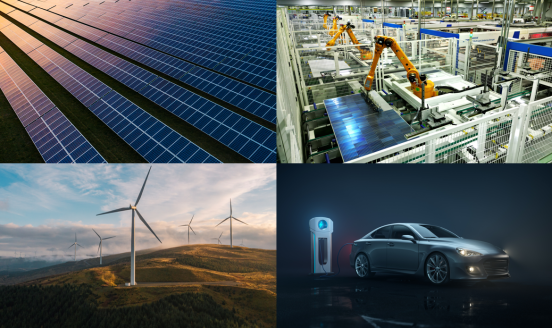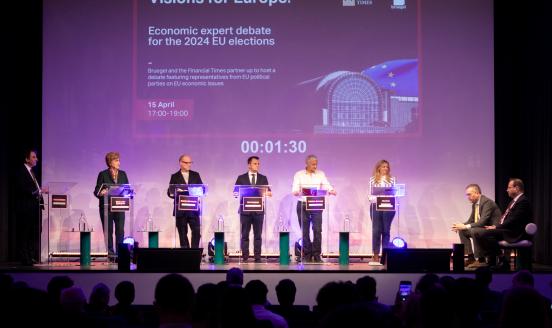Von der Leyen’s Green Deal isn’t just a plan for the environment
Ursula von der Leyen's proposal of a European Green Deal is ambitious and urgent. Not only does it aim to reduce the continent's emissions, but it als
This week, as part of her impassioned pitch to MEPs, Ursula von der Leyen established climate change as the priority for her prospective European Commission, promising to deliver a European Green Deal –in her first 100 days–able to make Europe the first climate-neutral continent by 2050. But can a deal be agreed? And what’s stopped Europe acting until now?
The deal is good for Europe, and for the world.
It is good for Europe because deep decarbonisation represents a historical occasion to modernise its economy, revitalise its industry and ensure long-term growth and jobs.
It is good for the world, because it shows that pursuing climate neutrality by 2050 is not only technically and economically possible, but also politically rewarding. And this is of paramount importance, as scientists have shown that achieving climate neutrality within that time frame is the only sensible way to limit global warming to 1.5 degrees Celsius, and therefore to protect the world from the more dramatic impacts of climate change.
Von der Leyen’s plan does not lack ambition. It already contains about 20 different policy proposals, spanning from the creation of a Sustainable Europe Investment Plan, to the introduction of a carbon border tax as well as the partial transformation of the European Investment Bank into a climate bank and the adoption of a new industrial policy for Europe.
The Green Deal represents an unprecedented opportunity for Europe to move away from fragmented policymaking
If structured and implemented with pragmatism, a Green Deal has – due to its comprehensive nature – the potential to unleash Europe’s deep decarbonisation, and therefore to profoundly reshape the continent’s economy. Just look at the European industrial sector. In a climate neutral scenario, all industries built on burning fossil fuels will have to transform or vanish within three decades; this will affect the regions that generate a large share of wealth from these industries; and ultimately the people that work in these industries, live in these regions and consume these products. It is clear that only a comprehensive policy – encompassing climate, energy, environmental, industrial, economic and social aspects – could face such a challenge.
As the EU cannot act without the approval of national governments, the key challenge facing Brussels’ decarbonisation initiatives has traditionally been surviving the same member states’ crossed vetoes. Different countries have different interests in different areas and different blocking/weakening minorities have often emerged in different decarbonisation initiatives, further exacerbating the challenge. The comprehensive nature of a Green Deal can help overcoming this challenge, as it opens multiple fronts at the same time, providing wider scope for negotiation, and thus allowing member states to compensate eventual losses in certain fields with gains in others.
For example, the recent EU failure in adopting a 2050 climate neutrality target was due to the opposition of the Czech Republic, Estonia, Hungary and Poland, which seek accompanying compensation packages to modernise their industrial sectors that were not even subject of discussion in that context. Had the discussion had been broader, the result might have been different.
The European Green Deal thus represents an unprecedented opportunity for Europe to move away from fragmented policymaking in the field, made up of stand-alone decarbonisation initiatives exposed to member states’ blocking/weakening minority. What follows could be a truly comprehensive and consistent policy framework capable of intelligently promoting deep decarbonisation by seizing the economic and industrial opportunities it offers, and by ensuring its social inclusiveness.
The EU has both the institutional and financial potential to make a European Green Deal work. What it needs is a strong sense of direction and an industrious pragmatism to pursue it, which is precisely what Von der Leyen promised in the European Parliament. Now she has to deliver, with audacity and determination. Should her project work, the Europe she leaves behind will be cleaner, richer and more functional than the one she inherited.



